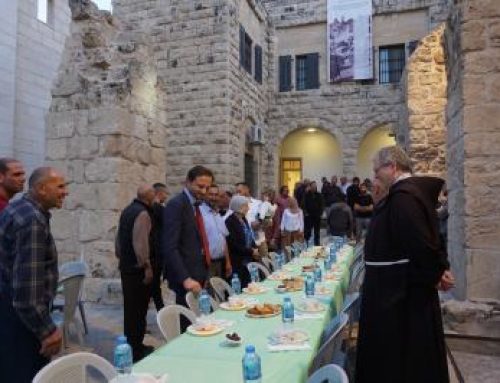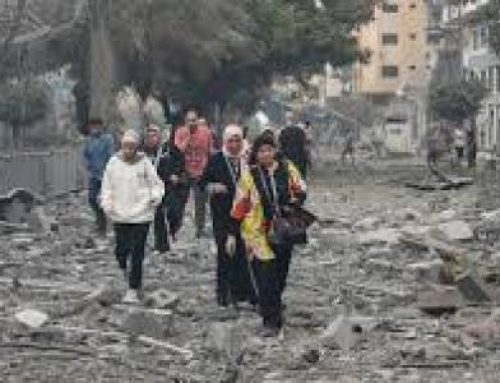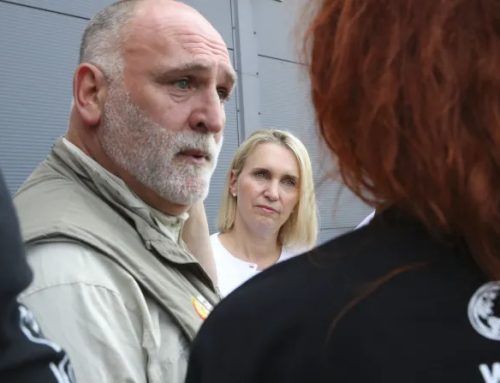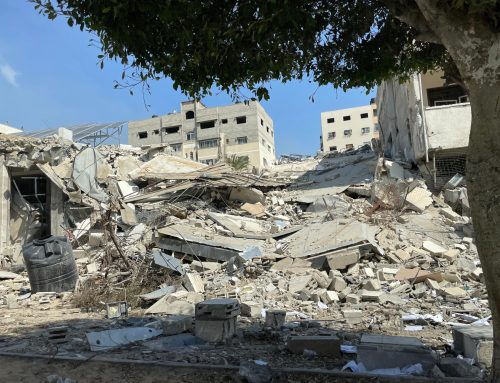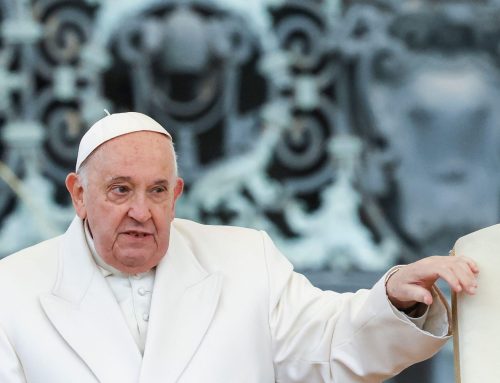As Palestinian authority leader Mahmoud Abbas and Israeli prime minister Ariel Sharon today declared a truce seeking to end four years of Middle East violence, church leaders around the world affirmed the event as a signal of new hope for a just and peaceful settlement. The National Council of Churches USA, which has recently sent a delegation of church leaders to the region, was among the first to respond positively. They have long favoured a bipartisan solution to the Israeli-Palestinian conflict. With 36 members, NCCUSA is the largest and broadest ecumenical association of Protestant, Anglican, Orthodox and African-American Christians in the United States, encompassing more than 100,000 local congregations in all 50 states. As Palestinian authority leader Mahmoud Abbas and Israeli prime minister Ariel Sharon today declared a truce seeking to end four years of Middle East violence, church leaders around the world affirmed the event as a signal of new hope for a just and peaceful settlement.
The National Council of Churches USA, which has recently sent a delegation of church leaders to the region, was among the first to respond positively. They have long favoured a bipartisan solution to the Israeli-Palestinian conflict. With 36 members, NCCUSA is the largest and broadest ecumenical association of Protestant, Anglican, Orthodox and African-American Christians in the United States, encompassing more than 100,000 local congregations in all 50 states.
In Britain the Methodist Church, the third largest denomination with over 6000 churches and 300,000 members, also welcomed the developments. Like other members of the Middle East Forum of Churches Together in Britain and Ireland they have cautioned that addressing the land issue, and the question of occupation as well as security, is vital.
Anthea Cox, Methodist coordinating secretary for Public Life and Social Justice, is due to visit the region next month in conjunction with the UK churches. development agency, Christian Aid.
"Although this is only the start of a long and difficult journey towards lasting peace," says Ms Cox, "we celebrate that the first steps have been taken. The US, the United Nations and the European Union all have roles to play in this, but peace can only come if the peoples and leaders of Israel and Palestine want it. Today's announcement is good news for the whole region, and our prayers are with all those who will carry this process forward."
Mr Sharon and Mr Abbas did not sign a formal ceasefire deal, reports the BBC. Their talks were wide-ranging and included agreements on the release of Palestinian prisoners and the handover of five West Bank towns to Palestinian control.
The meeting in the Egyptian resort of Sharm al-Sheikh was the highest level discussion between the two protagonists since the Palestinian intifada (uprising) began over four years ago.
Initiatives such as Christian Peacemaker Teams (an Ekkesia partner) and the international Ecumenical Accompaniment Programme for Israel-Palestine (EAPPI) are continuing to make crucial contributions to the painstaking business of peace-building from the ground up.

